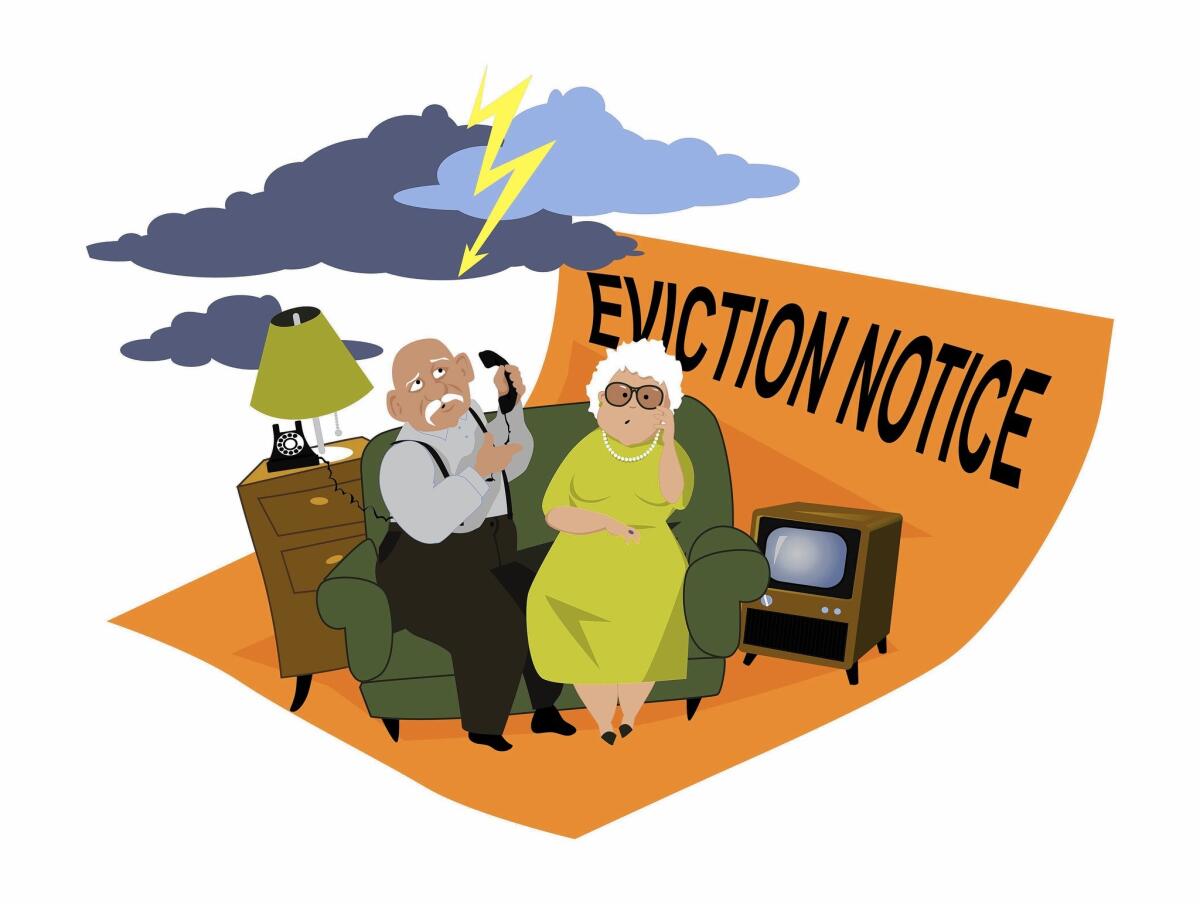Q&A: An eviction notice that doesn’t give a reason is invalid

Question: I’ve rented a single-family home more than 15 years. My landlord is a homeowner association. I was served an eviction notice telling me I had 60 days to vacate, but doesn’t provide my last date of possession. The line stating “signature of person serving notice” is blank. Doesn’t it have to be signed? The form states “if you fail to give up possession by the specified date, a legal action will be filed seeking possession and damages that could result in a judgment being awarded against you.” I am disabled and have nowhere to move to. Are the laws different for a non-homeowner association landlord? The eviction notice does not state a reason why I’m being evicted. Does it have to? Does the eviction notice have to be signed by the landlord who is purporting to evict me? Exactly how much notice must the landlord give me to move? Does my landlord have to pay my relocation fees, how much, and when does he have to pay it?
Stunning photos, celebrity homes: Get the free weekly Hot Property newsletter >>
Answer: All landlords, whether homeowner associations or not, must abide by the law, as must tenants.
First of all, make sure that what your landlord sent was an eviction notice, not a “three-day notice to pay or quit,” which is sent out if a tenant hasn’t paid the rent on time. That notice says, among other things, how much rent you owe the landlord. The notice must include the tenant’s name and the name of the person (either landlord or manager) who will accept payment from the tenant, under California Code of Civil Procedure 1161. There is no specific requirement for the notice to be signed by the landlord or building manager.
The eviction notice you describe has many problems.
The proof of service is part of the eviction notice and must be signed and dated by the person serving the notice (who might not be the landlord) or the eviction notice is invalid. The eviction notice must provide the specific date by which you must vacate the property. An eviction notice must state a reason why you are being evicted, otherwise it is invalid.
However, if your lease is expiring, this is not an eviction, and the landlord may not be required to provide a reason for terminating the lease agreement. In Los Angeles, no reason must be given in such circumstances. In other places, such as San Diego, a landlord must provide a valid reason to terminate the tenancy even if the lease is expiring. Check local ordinances to be certain.
If the landlord terminates a month-to-month tenancy and the tenant lived in the property less than 12 months, the landlord must provide at least 30 days prior notice to vacate. For tenants who lived in the property for more than 12 months, the landlord must provide at least 60 days prior notice to vacate, under California Civil Code 1946. If you live under a rent control ordinance, the landlord may not be able to terminate your lease but for a valid cause.
In specific circumstances, tenants in Los Angeles are entitled to relocation fees. The tenant must live in a residential unit under the Los Angeles Rent Stabilization Ordinance, also known as rent control, to qualify for relocation assistance. Tenants are not entitled to relocation fees when they’re evicted for breaking the lease, not paying rent, or when the tenant simply chooses to leave the unit and move elsewhere.
The most common circumstances under which a tenant is entitled to relocation fees are fairly specific, such as when:
• The landlord decides to remove the rental unit from the market permanently.
• The unit is converted into a condominium.
• The landlord decides to occupy the unit himself, or his spouse, his children, his parents, or a building manager.
• The landlord is required to comply with an order from a government agency.
Often, relocation fees are determined by the tenant’s age and the length of tenancy. But typically, relocation fees apply to tenants under rent control; single-family homes generally aren’t under rent control, so such fees may not apply in your case.
Avi Sinai, Sinai Law Firm, is an attorney specializing in landlord-tenant law and host of the Sinai Legal Blog at www.losangeleslandlordlawyer.com where landlords and tenants can ask questions and find answers at no cost. Vanitzian is an arbitrator and mediator. Send questions to Donie Vanitzian, JD, P.O. Box 10490, Marina del Rey, CA 90295 or noexit@mindspring.com.
More to Read
Inside the business of entertainment
The Wide Shot brings you news, analysis and insights on everything from streaming wars to production — and what it all means for the future.
You may occasionally receive promotional content from the Los Angeles Times.







